Do you ever feel like a hamster on a wheel going a mile a minute but getting absolutely nowhere? That is what it’s like when you’re trying to get your health under control, but you’re not paying attention to your gut.
Essentially, understanding how to get a healthy gut is a crucial step for you to function at your highest level.
You can try every health trick in the book – biohacking strategies for more powerful brain function, nutrition changes to boost your energy or the latest skin care product to reverse aging and improve your complexion.
But if you don’t have a healthy gut…well, it’s pretty much all in vain. Your gut health is a make or break component to your ability to optimize your health and really…your life.
Because, let’s face it.
How good can life really be if you’re spending all of your time dealing with fatigue, low energy, inability to focus, crazy hormones, excess weight and eventually chronic disease?
If you want to be invincible in life, your gut and your health has got to be ironclad.
So we’re going to tackle the problem together.
I want to show you exactly what the gut is, what happens when it is unhealthy, and why the gut is so influential in the first place. Then I will hand you the tools you need to fix the situation. Think of this as your guidebook on “How to Get a Healthy gut in 7 steps.”
So let’s jump off the hamster wheel and make some changes that will actually take us somewhere…
… that somewhere being your ultimate healthy body and mind.
What Exactly Is Your Gut?
I am about to talk a lot about your gut, so let’s make sure we are on the same page when I use that word.
Your gut is your digestive system, also known as your GI tract. This includes all those organs like your stomach, intestines, pancreas, liver, and so on.
I will also mention your gut flora, also known as your gut microbiota or microbiome. This is the group name for all of the living creatures residing inside your body, which total somewhere around 100 trillion. (Slightly creepy, right?)
This Is What A Unhealthy – Or Leaky – Gut Looks Like
Don’t worry. I will spare you the pictures. But I am going to give you a clear word picture of what is going on when your gut is less than okay, or as it is sometimes called: leaky gut.
When you have a poor or compromised digestive system, you can experience:
- Diarrhea, constipation, or both
- Frequent illness due to a lagging immune system (boost immunity with our Immunity Greens Supplement)
- Headaches and brain fog
- Food sensitivities – gluten and dairy make this worse
- Vitamin deficiencies
- Allergies and/or asthma
- So. Much. Exhaustion.
- Skin problems like acne or rosacea or eczema
- Sugar cravings, carb cravings (all the cravings!)
- Pain in your joints or arthritis
- Depression, anxiety, or both
- Autism, ADHD, and ADD
- Autoimmune diseases like thyroid dysfunction, celiac or Crohn’s
- And more…
This list should show you 2 things:
- Look how many areas of the body the gut actually influences!
- These are such common health problems facing countless numbers of people everyday.
Why All Of This Happens
It all comes back to that gut flora I just mentioned (Those 100 trillion residents you have chilling out in your digestive system!).
You see, bacteria is either good or bad, hostile or friendly.
A quick use of logic leads us to realizing we want less of the bad and more of the good. Healthy guts are filled with good bacteria. Unhealthy guts are lacking good bacteria.
Unhealthy guts can also have compromised intestinal lining. Often times this happens from eating a super processed diet for way too long and it’s very hard on the digestive system. Hard to digest proteins like gluten can cause microlesions in the gut leading to leaky gut, food sensitivities and other autoimmune issues.
If your gut is unhealthy you may also be dealing with poor protein breakdown and/or poor nutrient absorption – meaning, your body is not absorbing essential vitamins and nutrients from your food the way that it should. This can lead to micronutrient deficiencies and other health issues.
Which brings us to antibiotics.
Though they are brilliant enough to save lives, they are not as discriminating as we would like them to be. Essentially, they kill the bad guys and the good guys – entirely messing up your gut flora. And we’re inundated with them:
- We are being overprescribed antibiotics – with at least 30% of these prescription being unnecessary
- We are ingesting the antibiotics given to animals when we eat conventional meat
- The CDC considers antibiotic resistance “one of the world’s most pressing public health problems”
On top of the antibiotics, we have things like toxic chemicals and pesticides, poor food choices/quality, and a frenzy of antibacterial hand sanitizers doing even more harm to our gut bacteria.
Here is the real kicker – somewhere around 80% of your immune system is found in your gut. And a large majority of our neurochemicals (like dopamine and serotonin) actually come from the intestine too. It is no surprise than many medical professionals and researchers refer to the gut as the body’s “second brain.”
This means learning how to get a healthy gut not only improves your bowel movements. It can change your entire life.
How To Get A Healthy Gut In 7 Steps
By now you know exactly why you need a healthy gut. But just because you know the desired destination does not mean you know exactly how to travel there.
Here are 7 steps you need to take to boost your gut health. You will quickly see that diet is the main star of the show, which makes total sense: if the digestive system can be the source of illness, it should also be your source of healing.
1- Add in Probiotic Rich Foods
As we already learned, a healthy gut requires plenty of good bacteria. And we actually have the ability to directly add more of that friendly bacteria to the gut – all thanks to probiotics.
Probiotics are friendly bacteria that protect, support, and optimize your entire gut. Anybody who is interested in learning how to get a healthy gut should start right here with fabulous food sources of probiotics and fermented foods.
These include:
- Sauerkraut
- Kimchi
- Tempeh
- Kombucha
- Fermented Pickles
But the list does not have to stop there. Any fermented food can have probiotics, and just about any veggie or fruit can be fermented. You can easily make anything from fermented berries to fermented hot chili sauce.
Many people find that eliminating dairy while healing up the gut is beneficial as well. But if you are still a dairy eater, you may as well take advantage of the two milk-based probiotic rich foods: yogurt and kefir.
If you choose to add dairy into your diet, choose a source that’s organic and from grass-fed cows. Remember, we want to avoid conventional meat because it’s pumped full of antibiotics and hormones.
2. Add Prebiotic Rich Foods to the Diet
Now you understand that a healthy gut needs probiotics, so what’s the deal with prebiotics? What are they and how are they different?
Prebiotics are a type of plant fiber. (For the science brains out there, we are talking about FOS and inulin in particular.)
Our bodies don’t digest fiber, but the good bacteria in our guts can still use it as fuel. So prebiotics are essentially food for probiotics.
To make the deal even sweeter, as the good bacteria breaks down the prebiotics, the parts not used for food can actually support the gut’s lining.
While you can find the FOS (Fructooligosaccharides) and inulin in many fruits and vegetables, these foods below are extremely rich in prebiotics. On the journey of figuring out how to get a healthy gut, adding these items in your weekly food rotation is a must:
- Chicory Root
- Jerusalem Artichoke
- Dandelion Greens
- Garlic
- Leeks
- Onion
- Shallot
- Asparagus
- Jicama
- Under-ripe Banana
Pro tip: consuming these prebiotics in their raw form can be even more powerful than consuming them cooked.
3. Remove Frankengrains
The term “frankengrains” gives a nod to the mad scientist way that wheat and other grains have been genetically altered over time.
The wheat we have today in America is not exactly the same as the wheat our ancestors grew and ate. It has been adjusted and hybridized.
In the process of learning how to get a healthy gut, you should eliminate:
- All products containing wheat
- All products containing gluten (be aware that gluten can hide really well; it is found in products like soy sauce, marinades, spice mixes, and more)
- All genetically modified grains (do not forget about corn, which is so often genetically modified)
If you still want to include some grains in your diet, make sure you are choosing low-glycemic options. Something like white rice – even an organic variety – will offer you no nutrition and a spike in blood sugar. Instead, you can try organic quinoa, buckwheat or a tasty alternative such as cauliflower rice.
4. Remove Inflammatory Foods
The process of inflammation is intended to protect us from invaders like viruses. But good things taken to an extreme can become bad things (inflammation, wine, 1-Click Shopping on Amazon…). When our bodies become inflamed without actually needing to protect us, we are in trouble.
Inflammation and the gut have a close relationship that can either be bad or good. When the gut is healthy, inflammation in the gut and body tends to go down. When the gut is unhealthy, inflammation in the gut and body goes up.
The American diet is filled with sugar, starches, and saturated fat and depleted from vitamins, minerals, fiber, omega-3 fatty acids, and antioxidants. Which just so happens to be the exact recipe for inflammation.
Kick these inflaming foods out of your diet right away (you can replace them with all the extra probiotic and prebiotic rich foods above):
- Sugar
- Artificial Sweeteners
- Processed foods (Particularly processed meats, which are carcinogens)
- Saturated fats (Commonly found in processed foods)
- Dairy
- Trans fats (Often found in butter replacements and some baked goods)
- Non-organic, grain-fed meats
- Fast food
- Gluten/frankengrains
5. Include Bone Broth and collagen
A long time ago, people used to eat more of an animal than we do now. We may think we are diverse when we use the breast and the thigh, the chop and the roast – but the traditional use of meat included everything…
…including the bones. Not by gnawing on bones, but by producing bone broth. This is why our grandmothers and mothers made us chicken soup when we were sick. We knew it made us feel better, but we weren’t quite sure why.
But science does.
Bone broth is chalk full of minerals like calcium and magnesium as well as collagen and gelatin.
We’ll spend some time talking about how important the last two are for our guts in a minute).
These substances, along with bone broth’s ability to help reduce inflammation, aide digestive problems, and absorb vital nutrients that make it an essential addition to a healthy gut diet.
Here is a recipe to make your own bone broth.
Apparently grandma knew how to get a healthy gut all along…
6. Add in Supplements
The main thing for you to realize if you want to know how to get a healthy gut is this: food is your medicine. What you eat and what you don’t eat play such a significant role in creating a gut that supports your entire body.
But we all could use a boost from time to time, right? That includes your diet.
When you think of dietary supplements not as your gut savior to rely on, but as an extra helping hand to an already gut-friendly diet, you are setting yourself up for success.
Here are some top choices:
- L-Glutamine: This amino acid plays an important role in fueling and supporting your gut – particularly the gut lining. The side benefits are great too: burn fat and build muscle.
- Probiotics: We already know why probiotics are so essential in helping the gut. While eating probiotic-rich foods is essential, adding in even more probiotics through a supplement form is incredibly helpful too. Look for a brand that has a high count of active cultures and no fillers.
- Gelatin: That same ingredient you find in desserts like Jell-O is actually a fabulous healer of the gut’s lining. But do not go sucking down the cherry Jell-O and all its sugar to boost your health (cliff notes: it won’t help). While you can get gelatin from bone broth, you can also purchase it in convenient supplement form.
- Collagen Powder: Yes, a substance that makes your skin young and fresh can also make your gut young and fresh. I know, that is probably the best news you’ve heard all day! Collagen can help soothe and protect your gut while helping to fill in fine lines and wrinkles. Once again, you’ll get collagen naturally if you eat bone broth, but you can also supplement with it as well. We love our Beauty Collagen Complex powder (it’s a delicious vanilla honey flavor) in teas, smoothies, lattes, oatmeal, pancakes, and more. I have an entire podcast episode that dives into how collagen can heal the gut. You can listen to it here.
7. Reduce Stress and heal adrenal fatigue
Other than poor diet choices and too many antibiotics, your gut health has another fatal enemy: stress. I know you are probably already stressed about your stress, but it is important to understand the real negative impact it can have on your body. Science has shown us that stress can:
- Cause disorders like IBS, peptic ulcers, and reflux
- Change gastrointestinal secretions and mucous
- Harm the gut’s microbiota
- Prevent full nutrient absorption
- And much more
It makes sense why most of our clients who struggle with chronic stress and adrenal fatigue also struggle with digestive issues. Stress puts us in a chronic state of fight or flight, when our bodies are in survival mode, they take energy away from digestion and put it towards “surviving” by increasing heart rate, breathing, etc.
I dive into the connection between adrenal fatigue and leaky gut, wild hormones, and other gut issues in this podcast episode.
To heal gut health, start by uncovering what helps you de-stress and unwind. That may be soothing meditation and yoga classes, or it may be weightlifting and kickboxing. Or is may be including adaptogens in your daily routine. Whatever it is, make sure to set aside time to and do it regularly.
One thing you may not have thought about is stress while eating. This is just as important as mitigating stress throughout the day.
Having heightened stress hormones while you eat can lead to impaired digestion and metabolism issues.
A great way to reduce your stress during a meal is to diffuse calming essential oils in your dining room. Great choices include lavender, frankincense, vetiver, bergamot, and roman chamomile. Then turn off the TV and play whatever music feels relaxing to you.
Your Healthy Gut
Now that you know how to get a healthy gut, the keys to a healthier life are in your hands. Remember through this process that each change you implement to improve your gut health radiates beyond your GI tract into your entire body and our mind.
Powerful, right?
So, let’s turn all of this information into a conversation. Talk to me below. Do you have symptoms of an unhealthy gut? Have you incorporated any of these seven steps yet? Do you have a killer fermented food recipe to share?
Check out our Superfood Supplement line to begin the healing process today.
Sources:
- https://www.ncbi.nlm.nih.gov/pmc/articles/PMC3667473/
- https://www.cdc.gov/getsmart/community/about/fast-facts.html
- http://probiotics.mercola.com/probiotics-health-benefits.html
- https://www.ncbi.nlm.nih.gov/pubmed/22314561
- https://www.ncbi.nlm.nih.gov/pmc/articles/PMC3257638/
- http://nourishedkitchen.com/bone-broth/
- http://www.wheatbellyblog.com/2016/11/little-butter-slice-muta-wheat/
- https://wellnessmama.com/23777/bone-broth-benefits/
- http://articles.mercola.com/sites/articles/archive/2013/03/07/inflammation-triggers-disease-symptoms.aspx
- http://nourishedkitchen.com/perpetual-soup-the-easiest-bone-broth-youll-make/
- https://www.nytimes.com/2015/06/28/magazine/can-the-bacteria-in-your-gut-explain-your-mood.html


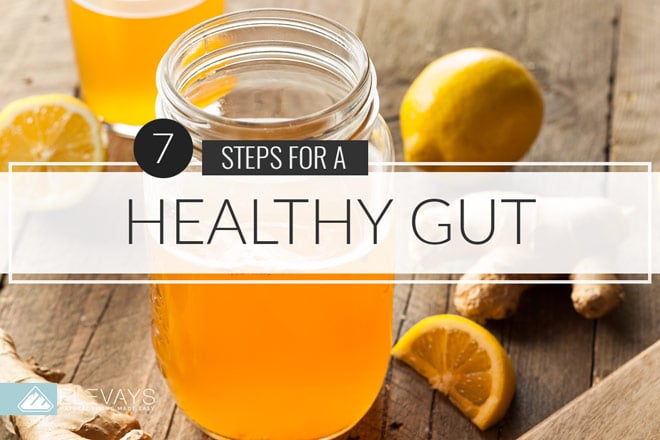
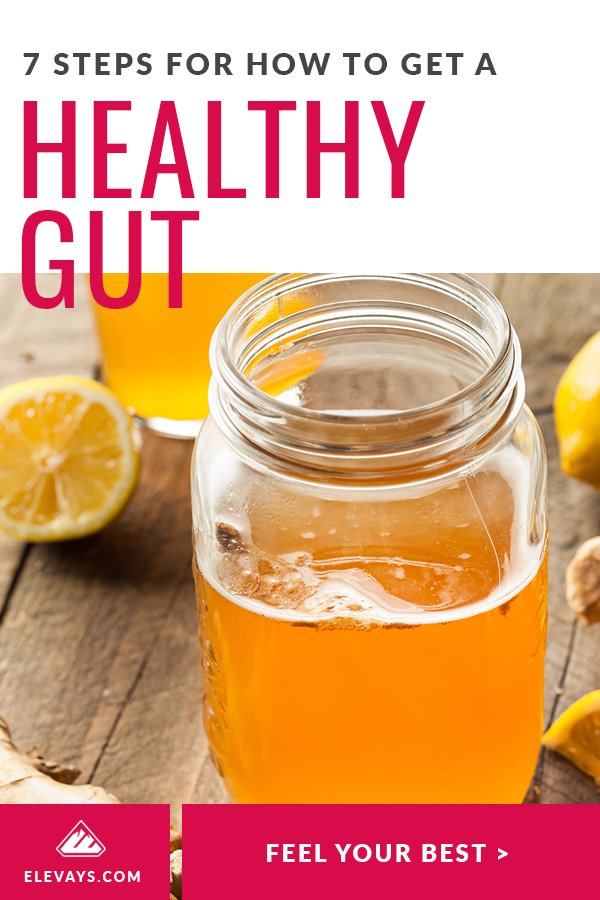
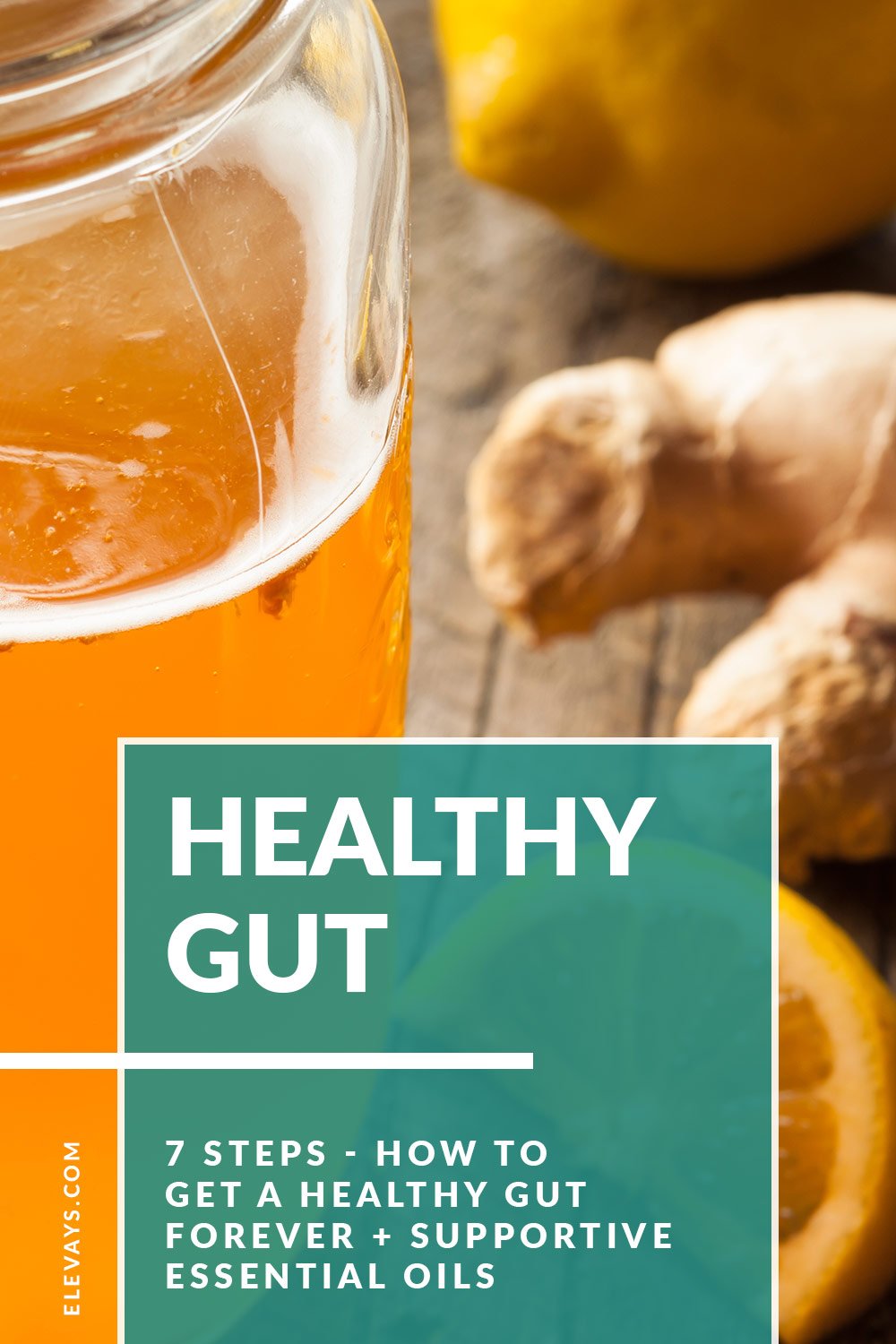
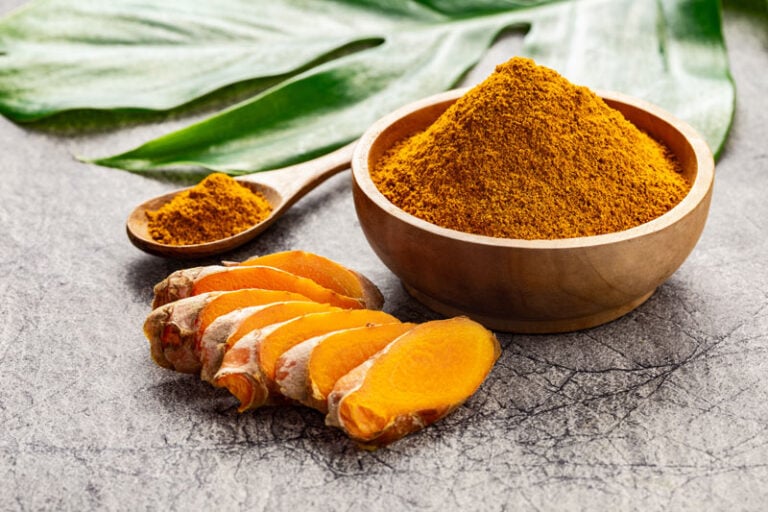
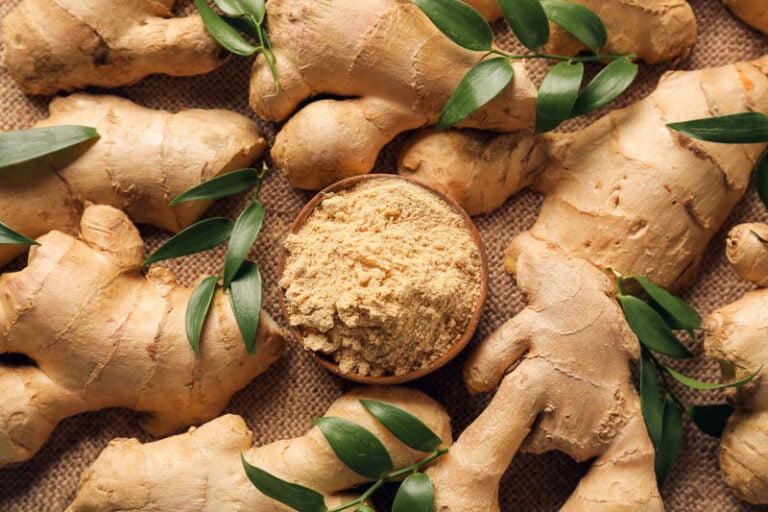


So good, thx! I am almost certain I am dealing with this. And this rundown of symptoms is spot on!
Thanks, Ryan! We appreciate your comment! 🙂
Thank you for all the wonderful information. I am currently switching over to the Mediterranean Diet due to gut problems. I have been researching everything I can find to help me get the healthy gut I need. Your article is very helpful in my research.
That’s great! I’m so glad it was helpful for you!
Thank you for all the infor in healing my gut.ohzanna
You are so welcome!